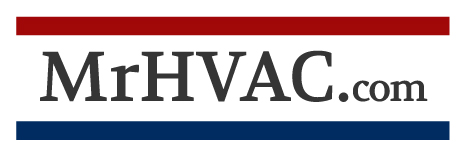Considering a QuickBooks Bolt-On?
QuickBooks® is a great program but it is generic. There are “bolt-on” software programs that are advertised to extend the capability of QB. Be careful. A bolt-on can be a temporary stop gap measure that may cost you a lot more money in the long run. In most cases it is actually cheaper to own a specialized, HVAC industry specific software program than it is to own QuickBooks and a bolt-on software program.
Sold on the Seamless Integration Fallacy
Many bolt-on users get sold on the idea of “seamless integration” only to find out that they end up with double entries, duplicated data, and two programs that really don’t talk to each other like they were promised. Software salespeople throw phrases around like “seamless integration” and “complete integration”. I can tell you that the computer programmers that I know don’t use these phrases. There is no such thing as “seamless integration” when it comes to accounting software. There isn’t any way that two separate companies, with different cultures, different programmers and different management philosophies, could make two separate software programs that integrate seamlessly.
Data Synchronization is an Efficiency Killer
Then there’s the difficulties created with data synchronization. Both software programs are rarely ever up to date. Each program has its own database so they have to be synchronized constantly. This can be very hardware intensive and there can be significant wait times while the two programs try to synchronize two different sets of data. If you’re a large company with lots of users, this process could kill your office productivity. It can even get much worse if you use smart phone mobile software.
Another problem is that you don’t have complete information or accurate reports until you synchronize. Users don’t want to synchronize because it can “lock up” their computers while the process chugs along. If the two software programs try to sync in real-time, the constant syncing can make the software super slow to use. Let’ say you want to see your income statement or accounts receivable report, it will not be accurate until you synchronize. Inventory counts won’t be current until you synchronize. For many businesses, that burden is simply unacceptable.
Another problem with bolt-on software is that now you have two different software programs to learn and keep updated. We have had users tell us stories about each software company blaming the other for technical support issues. Users end up making multiple phone calls trying to get solutions to their problems. wouldn’t it be easier to have just one company to call for training and support?
Payroll, accounting, and dispatching are not separate business functions and neither is sales and marketing. They are closely related and need to be performed in one software program with all of the data in one centralized database. How can a bolt-on do job costing when it doesn’t even process your payroll?
There can also be issues with new version compatibility, parallel security, data integrity, sluggish performance, networking; we could go on and on.
Bolt-On Software Can Make a Future Switch Far More Difficult
Using bolt-on software in conjunction with QuickBooks means that you are storing information in two different databases. QB will contain certain accounting information and the bolt-on might contain work orders, customer equipment, repair history, service agreements, and more. Each database is structured differently and likely uses different ID numbers to keep everything straight.
If you switch to a single specialized accounting program, migrating data from two separate databases can be a nightmare and can result in mess of duplicated and misplaced data. This can take years to clean up.
When is it Time to Leave QuickBooks?
No one seriously argues that QuickBooks should be used to run a service oriented business once it reaches a certain size or level of sophistication. The question is what is that size or level? Is it 10 employees? Is it 15 employees? It is too hard to say for sure.
In our experience, the company size at which QuickBooks becomes a liability rather than an asset is a lot smaller than most people think. No matter how small you are, if you are growing and it’s getting harder and harder to stay efficient and keep the shop under control, it’s time to move beyond QuickBooks.
If you are a technician, you might appreciate this analogy. Software is a tool and QB can be thought of as a generic starter tool set. For some, a generic starter tool set is all that is needed. Once you reach a certain level though, you’re going to need a more complete and specialized set of tools. Trust your gut instincts on when that day arrives.
It’ Time for Software Made Just for Your Industry
If you are reluctant to leave QuickBooks, we understand why. It’ a great product for what it was designed to do; provide a general accounting solution for small businesses. The essential difference between QuickBooks and an industry specific software program is that QuickBooks is a generic accounting software program while the other should be a highly specialized service contracting business management software program.
Software is a Tool
You know how tools are. It’ not always apparent how a better tool can make you money. Sometimes you can’t see the value until you try that new tool out. Then you might wonder how you ever lived without it.
With this economy, everyone’s trying to save money and they’re not looking for better software. Software is a tool and tools make you money. Using the correct tool can allow you to do your work faster, easier, and more efficiently.
It may be time to upgrade to a real service and field management software system, which can take your company to a new level of efficiency and understanding.
QuickBooks® is a registered trademark of Intuit.

Leave a Reply
Your email is safe with us.
You must be logged in to post a comment.